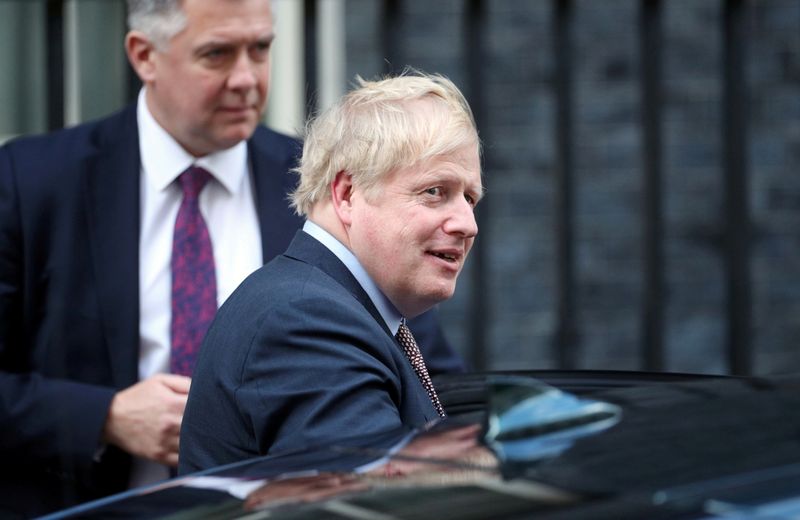By William James and Stephen Addison
LONDON (Reuters) - Britain criticized the European Union on Sunday over the process of agreeing on its negotiating mandate for post-Brexit trade talks, saying the bloc was "hamstrung by indecision and delay" because different members wanted different things.
The outcome of the talks between Britain and the EU, its biggest trading partner, will define how the $2.7 trillion British economy develops following its departure from the EU.
But before formal talks have even begun the mood of the negotiations is already tense, with European leaders questioning whether there is enough time to do a deal and Britain accusing the EU of changing its mind about what is on offer.
On Sunday, Prime Minister Boris Johnson's office increased that tension by taking a swipe at the EU process of finalizing its negotiating position.
"(British) ministers are united in the government’s approach to the negotiations," Johnson's office said in a statement.
"This is in contrast to the process of agreeing the EU’s mandate, which so far looks to be hamstrung by indecision and delay due to the competing interests of different member states."
However, the European Commission has already proposed a negotiating mandate which could be signed off by member states on Feb. 25, allowing talks to begin on schedule in early March.
Despite leaving the EU on Jan. 31, Britain is still operating under EU rules as part of a divorce settlement. This transition period ends on Dec. 31.
The Sunday Times reported that British officials had been instructed to find a way to circumvent an agreement on how to handle trade between EU member Ireland and neighboring British province Northern Ireland.
That would potentially unpick one of the most delicate elements of a Brexit settlement that took more than three years to agree. Johnson's office declined to comment on the report.
British ministers will meet on Tuesday to sign off on the formal trade mandate document which will frame its negotiating aims, before it is published on Thursday.
"The UK has made clear a number of times, and will reiterate, its desire for a Canada-style deal," Downing Street said in a statement.
The EU-Canada deal, which came into force provisionally in 2017, removes most tariffs on goods traded between the two countries but does little to facilitate trade in financial services, which are very important for the UK economy.

EU chief negotiator Michel Barnier has said Britain cannot have such a deal, free from the bloc's rules. French President Emmanuel Macron said earlier on Saturday it was not clear whether an agreement can be reached, as Johnson wants, by the end of the year.